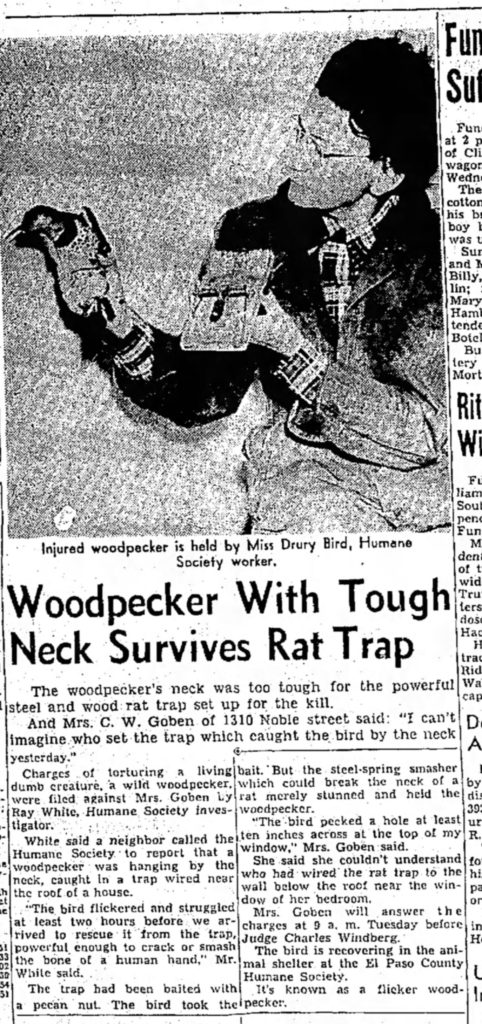Drury Bird was born in Clarksville, Texas and grew up in El Paso, she was a foster child, being the adopted daughter of the Cass Family. She was adopted by the Cass family after the death of her parents in a car accident. Bird was close to her adopted sister, Marie Cass and the two lived together at 2811 Gold Street. Ms. Bird worked for the F.B. Typewriters Co, Mountain States Telephone and Telegraph Co and El Paso Laundry and Cleaners. Bird was one of the founders of the El Paso Humane Society and was known for her efforts to make sure all animals received humane treatment. Her home became known as the “El Paso Shelter Annex” because she and Cass loved animals and took in stray and injured animals. Bird started off as a volunteer assistant for the Humane Society and later became assistant manager in 1951. She serve as the Society’s Executive Secretary and as publicity chair. Her tradition of picking up strays and rescuing sick animal started years before her involvement in the local human society. Bird was also was appointed deputy constable In 1947, her job was to enforce animal regulations.
Bird was active in the Trinty Methodist Church and was a member of the National and Local Press Women’s Associations. Bird wrote a column for the El Paso Times called the “Kennel Corner ” which won several awards. Bird started writing young and sold some of her articles to magazines. She wrote poetry but it was never published. She also at one time ran a small potato chip factory. Bird use pay for evening entertainment in Juarez nightclubs by dancing and whistling to songs. She died in El Paso in 1969.
Joseph Longo
EPHS Curator
CURATOR@ELPASOHISTORY.COM.

